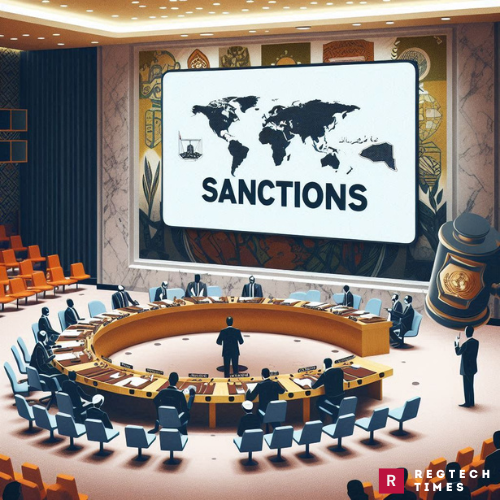The Sudan conflict, a devastating war that erupted in April 2023, has drawn the attention of the United Nations Security Council as violence and human rights abuses continue to plague the nation. In a significant development, the U.N. is considering imposing its first sanctions related to this ongoing conflict, targeting two generals from Sudan’s notorious Rapid Support Forces (RSF). The proposed sanctions, put forward by the United States, aim to hold these key figures accountable for their roles in the escalating violence that has led to a severe humanitarian crisis in the region.
The Sudan Conflict: A Nation in Turmoil
The Sudan conflict began as a fierce power struggle between the Sudanese Armed Forces (SAF) and the Rapid Support Forces (RSF). The RSF, a powerful paramilitary group with roots in the Janjaweed militias, has been at the forefront of this brutal war. The conflict has thrown Sudan into chaos, with millions of civilians caught in the crossfire and forced to flee their homes. The RSF, under the leadership of General Mohamed Hamdan Dagalo, known as “Hemedti,” has been accused of widespread atrocities, including ethnic violence, mass killings, and other severe human rights abuses.
Humanitarian Crisis Amid the Conflict
The Sudan conflict has created one of the world’s most severe humanitarian crises. Nearly 25 million people are in urgent need of assistance, with millions displaced, seeking refuge in neighboring countries or in overcrowded camps within Sudan. The conflict has exacerbated existing challenges, including economic instability, food insecurity, and the effects of climate change, pushing the country to the brink of collapse.
Humanitarian organizations have struggled to provide aid due to the ongoing violence and insecurity. Access to essential services such as food, clean water, and medical care has become increasingly scarce, leaving the civilian population in dire straits. The international community has voiced growing concern over the situation, calling for stronger measures to address the root causes of the conflict and provide relief to those affected.
U.N. Sanctions: A Move Towards Accountability in the Conflict
In light of the escalating crisis, the United States has proposed sanctions targeting two prominent figures within the RSF: Osman Mohamed Hamid Mohamed, the head of operations, and Abdel Rahman Juma Barkalla, the commander in West Darfur. These sanctions, if approved, would involve travel bans and asset freezes, directly impacting the generals’ ability to move freely and access their financial resources.
US Imposes Sanctions on Sudan’s Paramilitary RSF Commanders Amid Darfur Crisis
This proposed action by the U.N. Security Council marks the first time that sanctions specifically related to the Sudan conflict have been considered. While the U.N. has previously imposed sanctions on individuals involved in the Darfur conflict in the early 2000s, these new measures reflect a growing recognition of the need for accountability in the current war.
The Role of the Sudan Sanctions Committee
The 15-member Sudan sanctions committee within the U.N. Security Council is responsible for reviewing the proposed sanctions. If no objections are raised by the committee members by the designated deadline, the sanctions will be enacted, sending a clear message that the international community will not tolerate the continued violence and human rights violations in Sudan.
Implications of the Proposed Sanctions
The potential sanctions against the RSF generals could have several important implications for the Sudan conflict. Firstly, they represent a significant step towards holding those responsible for the violence accountable. This could increase pressure on other actors in the conflict, including the SAF, to seek a resolution and engage in peace negotiations.
The Grim Reality of Sudan War: Unchecked Arms Flow from Turkey and UAE Amidst Embargo
Additionally, the sanctions could hinder the RSF’s operational capabilities by limiting the financial and logistical support available to its leaders. However, the effectiveness of these sanctions in curbing the violence remains to be seen, as previous international efforts to resolve conflicts in Sudan have met with mixed success.
The U.N.’s consideration of sanctions against key RSF generals is a crucial development in the international response to the Sudan conflict. As the humanitarian crisis deepens and the violence shows no sign of abating, the need for decisive action becomes ever more pressing. These proposed sanctions represent a step towards accountability and may pave the way for broader efforts to bring about peace and stability in Sudan. However, for the sanctions to be truly effective, they must be part of a comprehensive strategy that addresses the underlying causes of the conflict and works towards a sustainable resolution. The world will be closely watching the outcome of this decision, hoping for a turning point in the Sudan conflict.


